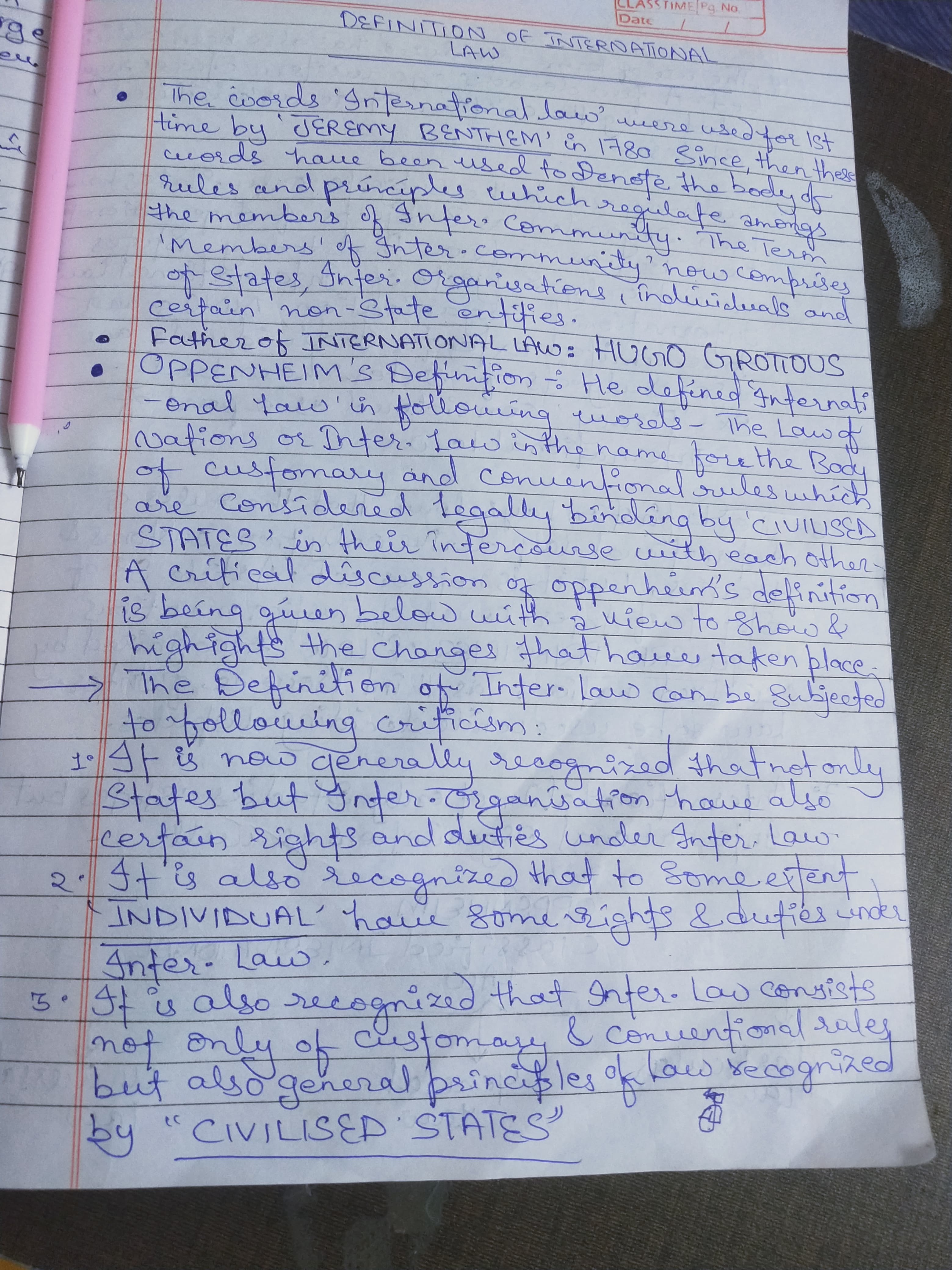What is the definition of international law according to Jeremy Bentham and Hugo Grotius, and what are some criticisms of this definition?

Understand the Problem
The question presents an excerpt discussing the definition of international law, focusing on key figures and their definitions, as well as criticisms of the definitions and recognition of rights and duties of states, organizations, and individuals.
Answer
Bentham: rules for states; Grotius: state conduct. Criticisms: includes organizations, individuals, and legal principles.
Jeremy Bentham's definition describes international law as a collection of rules governing relations between states. Hugo Grotius is often considered the father of international law, focusing on legal rules governing state conduct. Criticisms include that international organizations and individuals also have rights and duties, and it encompasses not just customary rules but also general legal principles recognized by civilized states.
Answer for screen readers
Jeremy Bentham's definition describes international law as a collection of rules governing relations between states. Hugo Grotius is often considered the father of international law, focusing on legal rules governing state conduct. Criticisms include that international organizations and individuals also have rights and duties, and it encompasses not just customary rules but also general legal principles recognized by civilized states.
More Information
The traditional view focuses on state relations, but modern interpretations include non-state actors and broader legal principles. Bentham's coining of 'international law' marks a significant development from earlier concepts like 'law of nations' used by Grotius.
Tips
Confusing the traditional state-centric view with the modern broader scope including non-state actors can be a common error.
Sources
- International law | Definition, History, Characteristics ... - Britannica - britannica.com
- International law - Wikipedia - en.wikipedia.org
AI-generated content may contain errors. Please verify critical information